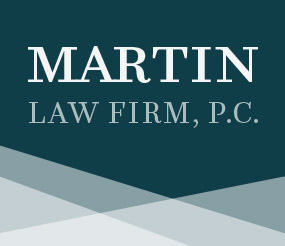Federal False Claims Act
Schedule a Case Evaluation Today

Statute and Penalties
Definitions
Prohibited Conduct
Individuals can also be prosecuted criminally under the False Claims Act statute when the conduct warrants it. In these cases, the Department of Justice will pursue penalties that include significant fines and jail time for violators. False Claims Act cases in the healthcare industry may include:
- Billing for services that were never rendered
- Submitting claims with procedure codes that have higher reimbursement than the procedure codes that more accurately describe the service performed
- Billing for individual services that should be bundled
- Billing for services that are not medically necessary
Civil Investigative Demand
Often, these matters start with a Civil Investigative Demand. Section 3733 of the statute authorizes the Attorney General to issue a Civil Investigative Demand requiring a person to produce documents, answer written interrogatories, and/or give oral testimony whenever the Attorney General has reason to believe that a person may be in possession, custody, or control of documentary material or information relevant to a false claim.
Anyone served with a Civil Investigative Demand should retain counsel immediately. Healthcare attorneys who have experience with False Claims Act cases should carefully review the Civil Investigative Demand to ensure that it does not violate the statute.
Specifically, a healthcare attorney should:
- Make certain that the Civil Investigative Demand (CID) states the nature of the conduct constituting an alleged violation of the law and general purpose for which the demand is issued
- For production of documentary material, make certain that the demand describes each class of material to be produced with such definiteness and certainty as to permit such material to be fairly identified
- Make sure that the written interrogatories are set forth with specificity
- Make sure that a demand for oral testimony properly prescribes a date, time and place for the testimony to be commenced
- Ensure that applicable time periods for responses are adhered to
- Object to a CID that does not meet the standards applicable to subpoenas or other rules of discovery
- Make sure that service of the CID on the client was proper
- Assist the client with responding to documentary requests or answers to interrogatories
- Be present for any oral testimony
Qui Tam and Whistleblowers
Federal and state governments and insurance carriers routinely target healthcare providers who are suspected of fraudulent conduct, including the submission of false claims for payment. Often, these cases start with a qui tam action filed by a whistleblower. Whistleblowers can be a disgruntled current or previous employee or a patient. The U.S. government can also target suspected violators after having investigated other health care providers, manufacturers of medical equipment and supplies, or management consultants.
Submission of false healthcare claims for payment under the Medicare and Medicaid program is an extremely dangerous matter. Allegations of conduct prohibited under the False Claims Act requires representation by experienced healthcare attorneys.
The Martin Law Firm healthcare attorneys are ready to help you respond to Civil Investigative Demands, allegations of False Claim violations and government interventions on qui tam claims.
Contact The Martin Law Firm today at (215) 646-3980 for a free case evaluation with an experienced healthcare attorney.
Please call (215) 646-3980 to schedule an appointment.
Practice Areas
Our legal team provides individualized legal solutions for our clients by offering high quality legal counsel and representation in diverse areas of law. Our attorneys regularly represent clients throughout Southeast Pennsylvania, including Montgomery County, Bucks County, Chester County, Delaware County, and Philadelphia County.
Tell Us About Your Case
Please submit the form and an attorney will contact you shortly.
Please indicate how you would like to be contacted in the form.
